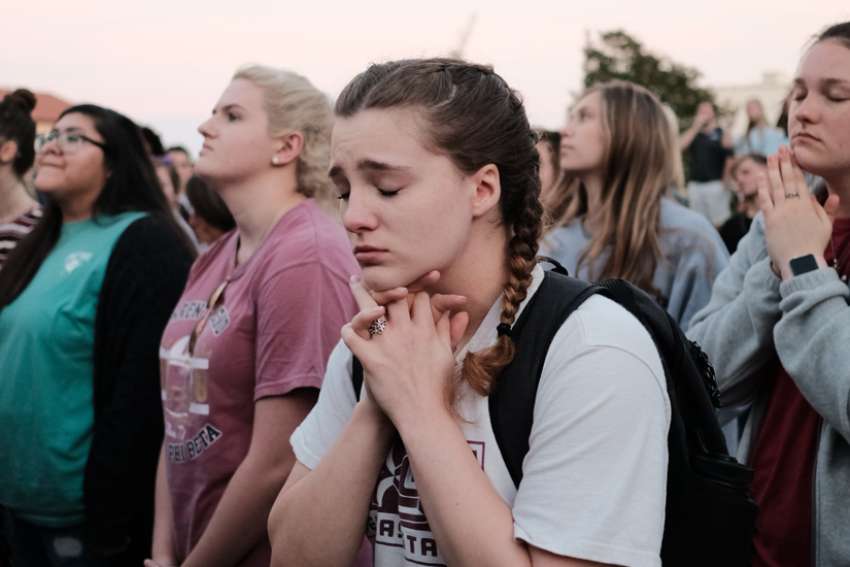God's Word on Sunday: Faith is what makes salvation possible
19th Sunday in Ordinary Time (Year C) Aug. 7 (Wisdom 18:6-9; Psalm 33; Hebrews 11:1-2, 8-19; Luke 12:32-48)
Time is a precious gift. How we use our time is an essential part of our spiritual life. Some people merely wait for events to overtake them with little thought to preparation or learning life lessons along the way.
God's Word on Sunday: Earthly concerns don’t come before God
18th Sunday in Ordinary Time (Year C) July 31 (Ecclesiastes 1:2; 2:21-23; Psalm 90; Colossians 3:1-5, 9-11; Luke 12:13-21)
The author of Ecclesiastes does not seem like the sort of person one would want to invite to dinner or to a party. His voice is wearied, passionless and a bit cynical. Nothing seems to interest or excite him.
Pope Francis' words in Canada may have broader reach
Pope Francis' July trip to Canada was born out of his meetings with the nations' Indigenous people and was planned around encounters with them, and if the pope's words "have value elsewhere," like throughout the Americas, all the better, said the director of the Vatican press office.
Jesuits bring spiritual life to margins and beyond
Prayer is not a privilege set aside for ladies and gentlemen of leisure, not a secret code revealed begrudgingly to an enlightened elite. Prayer is part of being human. The Jesuits, products of the 16th-century humanist revolution, are working to make sure it stays that way at their new retreat centre in Montreal.
God's Word on Sunday: If we seek God, He will open His doors to us
17th Sunday in Ordinary Time (Year C) July 24 (Genesis 18:20-32; Psalm 138; Colossians 2:12-14; Luke 11:1-13)
How do we respond to the chaos, fear, violence and injustice of our times? One of the most potent tools at our disposal is intercessory prayer.
Pope Francis names three women to office that helps him choose bishops
Ten days after saying he would name two women to the group that helps him choose bishops, Pope Francis appointed three women to the office.
God's Word on Sunday: We’re all welcome in God’s plan of redemption
16th Sunday in Ordinary Time (Year C) July 17 (Genesis 18:1-10a; Psalm 15; Colossians 1:24-28; Luke 10:38-42)
Abraham and Sarah had all but given up. God had promised Abraham a son and heir and that he would become a father of a great nation. But the time on the biological clock had run out, for they were both far advanced in years, and no son by Sarah had been born. And this is often the moment God chooses to act — when all human efforts have been exhausted.
God's Word on Sunday: We will find the law of love, oneness within
15th Sunday in Ordinary Time (Year C) July 10 (Deuteronomy 30:10-14; Psalm 69; Colossians 1:15-20; Luke 10:25-37)
Where can we find God? Even the greatest mystics and saints experienced times in which they felt that God was absent. They struggled with doubts and fears, as do most people.
God's Word on Sunday: Love raises us above what tears us apart
14th Sunday in Ordinary Time (Year C) July 3 (Isaiah 66:10-14; Psalm 66; Galatians 6: 14-18; Luke 10:1-12, 17-20
There is nothing as powerful as knowing that one is unconditionally loved. It gives hope, strength, courage and healing. With that knowledge of being loved we can bear the burdens that come our way and many things become possible. The spiritual exercises of St. Ignatius of Loyola begin with this as the “first principle and foundation” — we are created out of love and for love. That is our reason for existing — to love and be loved.
God’s kingdom is not for the half-hearted
13th Sunday in Ordinary Time (Year C) June 26 (1 Kings 19:16b, 19-21; Psalm 16; Galatians 5:1, 13-18; Luke 9:51-62)
Elijah was looking for a worthy disciple and successor and he had a novel recruiting method.
God's Word on Sunday: God’s mysterious ways aim for redemption
Most Holy Body and Blood of Christ (Year C) June 19 (Genesis 14:18-20; Psalm 110; 1 Corinthians 11:23-26; Luke 9:11b-17)
The early Church Fathers taught that Christ had always been preparing the way for the redemption that would come through the incarnation, crucifixion and resurrection. This is evident in the story from the very beginning of Israel’s history — the wandering of Abraham, still named Abram, and his meeting with the mysterious king of Salem, a man named Melchizedek.











